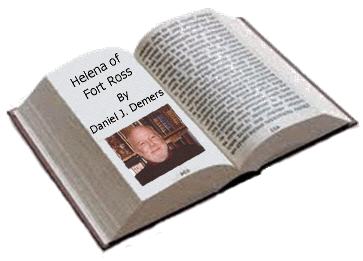Walt Perkins is a single father who takes his fatherhood seriously. Every week he and his daughter Ginger attend Mass at St. Elizabeth’s in Guerneville, California. Ginger is a beautiful nine-year old girl—destined, no doubt, to be a real heartbreaker as she matures. She inherited her father’s humorous personality. The affection they show one another in public is both inspiring and endearing. Before Mass, Ginger is studying for her first Confession and Holy Communion.
On this particular Sunday Walt felt his stomach rumble and he immediately put his sphincter into overdrive. He knew it was going to happen—just a matter of time. If he could just hold out to the next song—the music would muffle it, he figured. “Would it be loud, would it be stinky?” he embarrassingly pondered.
Finally the organ engaged and the choir commenced singing Gather Us In.
The congregation stood in unison. Enough distracting noise, Walt figured and let go. It was loud but he looked straight ahead. Then the stench—Phew! Lots of people heard and smelled Walt’s wind but nobody knew for sure it was him. “It’s over,” he thought.
Not so. Ginger, standing next to her dad, reacted by pinching her nose, moon walking away with deftness and speed while loudly exclaiming: “Phew! Phew! Phew.” At the same time, she was pointing her finger at her dad.
Walt was busted. He turned such a bright red it would make Rudolph the reindeer proud. He lowered his head and laughed as did many parishioners who witnessed (or smelled) the incident. At the same time he hand-gestured to Ginger to come back to her seat. The animated Ginger held her
Holy Flatulence
By Daniel J. Demers - ©Copyright 2013 - All Rights Reserved



THE WRITINGS OF
DANIEL J. DEMERS
Walt Perkins had a problem. It’s one of those things we all experience. Flatulating isn’t something talked about in polite society—let alone polite church society.
The fact is that the average person stinks between fourteen and sixteen times every twenty-four hours. Benjamin Franklin actually wrote an essay about the subject to the French Royal Academy noting: “that in digesting our common food, there is created or produced in the bowels of human creatures, a great quantity of wind” and that “permitting this air to escape and mix with the atmosphere, is usually offensive to the company, from the fetid smell that accompanies it.” The result, observed Franklin, was that “all well-bred people, therefore, to avoid giving such offense, forcibly restrain the efforts of nature to discharge the wind.” Franklin’s tongue in cheek solution was to develop a drug “holesome and not disagreeable” to be mixed with food and sauces which would render the wind “not only inoffensive, but agreeable as perfume.”

Page 1


E-MAIL ME ddemers901@sonic.net
